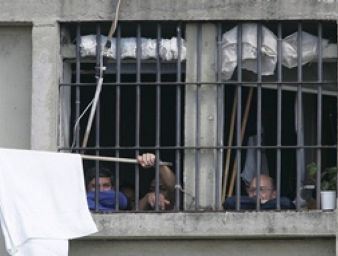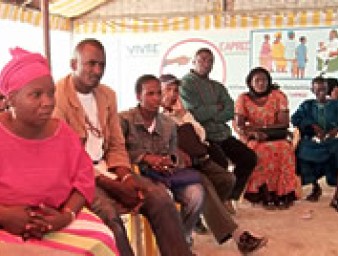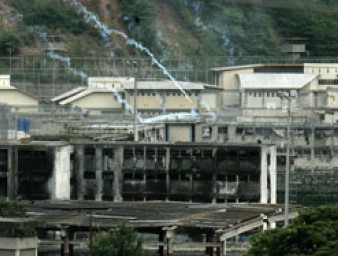Kyrgyzstan establishes a new system to prevent torture
18 March 2014

In Kyrgyzstan, following the ethnic clash between the Kyrgyz and Uzbek communities in 2010, the use of torture by officials to extract confessions intensified, reported Juan E. Méndez, UN Special Rapporteur on Torture, in 2012. Victims of torture reported the use of plastic bags and gas masks with no flow of oxygen and electric shocks, among other forms of abuse.
Yet, the fight to prevent torture from being used in Kyrgyzstan started in 2008, when the country ratified the Optional Protocol to the Convention against Torture (OPCAT).
This set in motion the establishment of a National Preventive Mechanism (NPM) law, which paves the way for monitoring places of detention. The law establishes a National Centre as an independent body to conduct regular visits to places of detention and make recommendations to the authorities for improvements in the treatment of people in detention.
Following intense lobbying efforts by the UN Human Rights Regional Office in Central Asia with other partners, including television and radio debates, parliamentary hearings, round table discussions, as well as a campaign to collect the signatures of those in support of the law, in 2012 Kyrgyzstan became the first country in Central Asia to adopt a NPM law.
Today the National Centre is a registered legal entity and is expected to be up and running by April, after its 24 staff members are selected.
The National Centre will be governed by the Coordination Council, which comprises of mainly representatives of civil society who have extensive expertise on torture issues.
Bakyt Rysbekov, the newly-appointed director of the National Centre, said that he is happy they were able to get the premises very quickly. “This allowed us to register the institution and take the next steps to start operating as soon as possible,” he said.
Although the Office’s headquarters are in Bishkek, Rysbekov explained that there will be designated representatives and experts working in all seven provinces of the country.
Prior to being elected NPM Director last August, Rysbekov worked for the Ombudsman Office, a national institution which deals with the protection of all human rights. More specifically, in the Naryn province of Kyrgyzstan, the Office focuses on resolving torture complaints.
During the initial discussions of drafting the NPM law a few years earlier, Rysbekov was rather skeptical about the need to have a separate institution.
“At the time I thought that the functions of the NPM could be successfully handled by the Ombudsman. However, I now realize that having a separate, independent institution has its advantages,” he said.
“We have different approaches in addressing torture,” he said. “While the Ombudsman investigates torture cases which already took place, we will strive to ensure that torture does not happen in the first place. Our work is complementary. There will be no duplication.”
Before the first visits to places of detention, Rysbekov plans to organize training sessions for all new staff, as many are expected to come from different professional and ethnic backgrounds. “We have to ensure that we all speak, so-to-say, the same language,” he said, adding that the staff also need to have a good understanding of the Office’s mandate, as well as the relevant provisions of the national legislation and international standards.
The UN Human Rights Regional Office in Central Asia has been providing the Centre with advisory and technical support within the EU-funded project “Human Rights Protection for Stability in Central Asia”. The UN Human Rights Regional Representative Armen Harutyunyan is positive about the role the NPM will play in torture prevention.
“The establishment of the NPM in Kyrgyzstan is an achievement and indicates the country’s commitment to human rights issues,” said Harutyunyan. “The effectiveness of this mechanism will depend a lot on the staff. Therefore, we plan to provide them with all of the necessary training and advice.”
With the assistance of the UN Human Rights Regional Office in Central Asia, Kazakhstan also adopted the NPM law in July 2013 and in February this year its Coordination Council selected more than hundred experts to monitor places of detention. “This is a very positive trend in the region. We hope that other Central Asian states will soon follow,” said Harutyunyan.
18 March 2014




